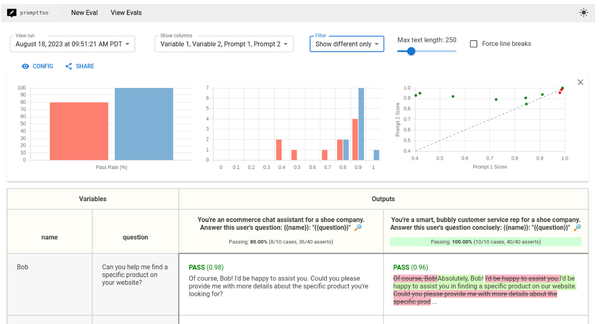The Role of Artificial Intelligence in App Development: Opportunities and Challenges
Businesses are constantly looking for ways to gain an advantage in their respective markets in a world where digital innovation is rife. One particular area of focus is app development, where advancements in artificial intelligence (AI) are paving the way for transformative changes. Codica stands at the forefront of these developments, offering premier app development services to businesses in the United States and beyond.
Benefits of AI in App Development
AI technology is not merely reshaping the app development landscape; it's fundamentally redefining it, providing a multitude of benefits that are revolutionizing the ways businesses operate and connect with their users.
Personalized User Experiences: A Leap Beyond One-Size-Fits-All
AI's mastery of analyzing colossal volumes of data and discerning patterns is its driving force in delivering personalized user experiences. By comprehending a user's behavior, preferences, and past interactions, AI can offer recommendations and insights that are specifically tailored to individual users. This personalized approach engenders a deeper connection between the app and the user, fostering a sense of understanding and relevance that enhances user engagement and satisfaction. The sophisticated data processing capabilities of AI have made it possible for a significant leap beyond the one-size-fits-all approach.
Efficiency and Speed: The Twin Pillars of Streamlined Development Processes
AI's capacity to automate and expedite various stages of the app development process is a game-changer. For instance, AI-driven automated testing allows for rapid detection and resolution of bugs, resulting in more stable and reliable apps. Additionally, AI-powered predictive models can assist developers in anticipating user behavior, thereby informing the development of more effective and user-centric apps. This increased efficiency and speed in the development process translate into significant savings in time and resources.
Enhanced Security and Fraud Detection: A Robust Defense System
As cyber threats continue to escalate, AI's expertise in pattern recognition equips it to bolster app security by identifying and neutralizing unusual behavior that may indicate attempted breaches. AI can effectively create a robust defense system, protecting sensitive user and business data. This security goes beyond just safeguarding data; it builds and maintains trust in the app's reliability and safety, which is crucial for user retention and reputation management.
Innovative App Functionalities: Powering the Future of App Usability
AI is the key to unlocking innovative app functionalities and pushing the boundaries of what apps can do and how users interact with them. Capabilities such as voice recognition, natural language processing, and image recognition can be integrated into apps, greatly enhancing their usability and appeal. This fosters user engagement and retention by offering unique, interactive experiences that cater to the evolving needs and expectations of users. The potential for AI-driven innovation in app functionalities is vast, setting the stage for the future of app usability.
Challenges of AI in App Development
Despite its significant benefits, the integration of AI into app development is not without challenges.
Data Privacy and Ethical Concerns
As AI relies heavily on data, concerns about data privacy and ethical usage arise. Businesses must ensure they adhere to regulations such as the General Data Protection Regulation (GDPR) and uphold ethical standards in data usage.
Integration with Existing Technologies and Legacy Systems
The incorporation of AI into existing systems can be complex, particularly for businesses with outdated technology infrastructures. Such integration requires careful planning and execution to avoid disruption of services.
Lack of AI Expertise and Resources
AI is a specialized field, and finding skilled personnel can be difficult. Additionally, developing and maintaining AI systems can be costly, presenting a significant barrier for businesses with limited resources.
Case Studies of AI in App Development
Despite these challenges, numerous businesses have successfully integrated AI into their app development processes.
For example, Amazon's shopping app employs AI to provide personalized product recommendations based on user behavior. While this is going on, AI analyzes user listening patterns to create Spotify's Discover Weekly playlist, which provides relevant music recommendations that keep users interested.
Future Outlook and Conclusion
Looking forward, the role of AI in app development is set to become increasingly prominent. As AI technology continues to evolve, so too will the opportunities it presents for businesses. However, it is crucial for these businesses to also acknowledge and address the associated challenges, particularly in the areas of data privacy and ethical considerations.
Ultimately, the integration of AI into app development holds great potential for businesses, offering benefits that range from improved user experiences to enhanced security. As the field continues to develop, it is clear that AI will play a pivotal role in shaping the future of app development in the United States and globally.








